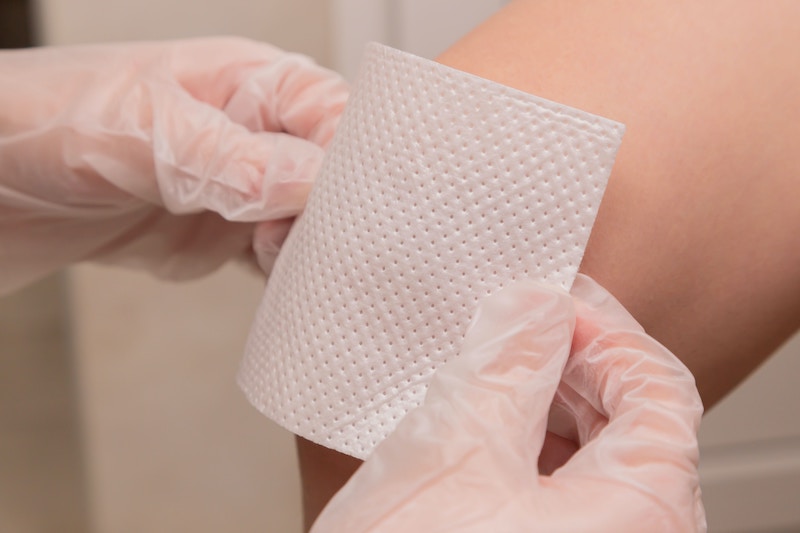
As the primary caregiver for a loved one’s wounds, one of your most important jobs is to prevent infection, not only because infection can lengthen the wound healing process, but also because certain infections can be life-threatening.
Our RFH Wound Care teams provide some tips and information to help loved ones caring for a wound at home. Following these important steps can help prevent infection, reduce skin breakdown and promote wound closure healing.
Preventing Infections for Wound Care Patients
- Wash hands before changing a dressing
- Wear gloves during all dressing changes
- Dispose of the old dressing in a plastic bag before placing it into the garbage
- Cleanse the wound and the surrounding skin thoroughly with sterile saline or wound cleanser before applying a new dressing
- Always wash your hands after
Avoiding Pressure Injuries
Another main goal for caring for a loved one with chronic wounds is to prevent further skin breakdown. Pressure ulcers may be caused by unrelieved pressure over bony parts of the body such as the heels or the buttock bone. Sitting or lying in one position for an extended period of time or constant moisture and friction can cause these pressure ulcers.
Tips for avoiding pressure injuries:
- Use appropriate support surfaces such as a specialized high air flow mattress or gel cushion chair pad
- Change position at least every two hours in bed and every hour in a chair
- When lying in bed, place a pillow lengthways under the calves of both legs to help prevent the heels from touching the bed and use pillows or foam wedges to keep the ankles and knees apart.
Check Your Loved One’s Feet Weekly
Diabetic foot ulcers can form from shoes that don’t fit quite right or because of injuries to the feet as a result of minor trauma. Patients with diabetes have decreased sensation in their feet, therefore it is important to check your loved one’s feet weekly for any new open sores or cracks.
Venous ulcers are wounds on the leg that occur between the ankle and below the knee due to high blood pressure in the legs (venous hypertension). This can cause swelling in the legs, fluid to leak from the skin and ulcers to develop.
- Assist your loved one in getting in daily exercise or provide daily range of motion exercises to increase blood flow to the legs.
- Patients should elevate their legs for 30 minutes, three times per day (American Journal of Nursing).
- Replace compression stockings every 6 months and use an applicator device to make it easier to get them on to avoid skin injury.
Your Family’s Diet
Another important factor when caring for a loved one with wounds is to help provide them with a proper diet with extra protein, calories and nutrients to aid in wound healing. It’s important to eat well in order to heal well.
- Power foods, along with higher amounts of calories, include protein, vitamins A and C, and zinc.
- Protein is used to build, maintain and repair body tissues (Cleveland Clinic).
- Eat a balanced diet to prevent any vitamin and/or mineral deficiencies; these are needed to help build and maintain new tissues.
- If the patient is not able to meet their nutritional needs through diet alone recommend oral nutrition supplements. Many varieties are available that provide extra calories, protein, vitamins and minerals in both flavored and unflavored options.
Information written by Caitlyn Frizziola, NP at RFH NJ
Supporting Resources:
Cleveland Clinic. What to Eat When You're Trying to Heal. Cleveland Clinic, 31 Jan. 2023, https://health.clevelandclinic.org/foods-to-help-healing/.
Kirkland-Kyhn, Holly PhD, FNP-BC, GNP-BC; Generao, Stefanie Anne MSN, FNP-BC,CWCN; Teleten, Oleg MS, RN, CWCN; Young, Heather M. PhD, RN, FAAN. Teaching Wound Care to Family Caregivers. AJN, American Journal of Nursing 118(3):p 63-67, March 2018. | DOI: 10.1097/01.NAJ.0000530941.11737.1c
